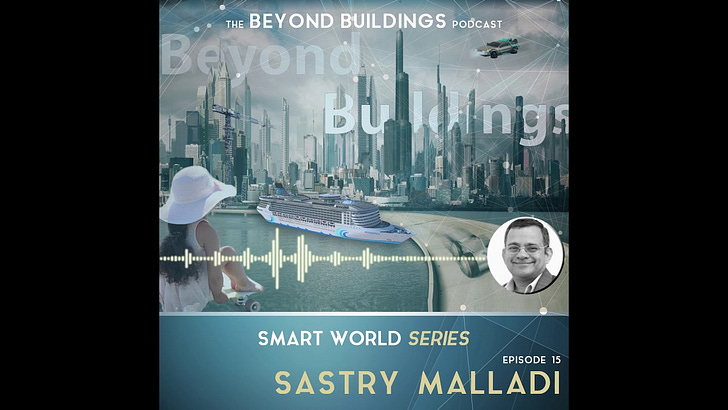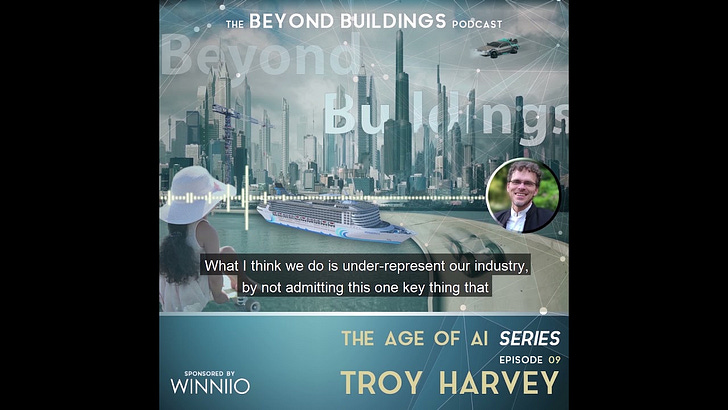Why is Foghorn not actively promoting Digital Twins even though they are doing a lot of these things today?
Want to know where the world is going and also get invaluable advice when bringing new products to market? Then this episode is for you and please remember to like, share, and of course, listen!
“As long as connectivity is solved, compute power is not the issue."
In this episode of the Beyond Buildings Podcast, we get to talk to the CTO of Industrial Edge player, Foghorn, and their CTO Sastry Malladi from Silicon Valley in California. Foghorn wants to solve real-world problems because they know that they can. And the IT-gods know that this is something the Beyond Buildings Podcast can rally behind!
Sastry has 30 plus years of technology background, is a passionate entrepreneur, been at big companies, small companies, IBM, Oracle, and eBay working with Cloud computing before that was even a term. It’s edge computing all the way and Foghorn is definitely going places. Sastry shares their journey to Digitalization and describes a phenomenal approach to talking to customers and piloting done right.
We will also get some interesting 5G discussions on what the value is all about and how companies should take the chance to leapfrog into the future. Commercial buildings and data center push, legacy in Oil & Gas, moving towards a product-market fit and scalability aspects. That’s what you will hear in this episode and much more like it.
These are some of the questions that are being answered in the episode!
How do you Edge-ify the machine learning model developed to run in a Cloud Lake setting?
What’s the difference between predictive and prescriptive maintenance?
What can industrial automation for buildings look like?
What is thermal imaging used for in the building automation space?
How important is it to cater to regional and different demands for different asset classes?
Where to start with the partner play and ecosystem thinking?
What is Foghorn’s take on a modern data strategy?
What are the drivers for getting started with Smart Buildings in the first place?
What does Energy, Convenience, and Environment mean in the Data Center space?
What is the first step to take in the Smart Building space?
What are the steps to take when taking out data from legacy systems?
What does exploratory data analysis mean, and how to get from data to information and insights?
What does Tribal knowledge mean and how to capture it?
Where is the data coming from? What quality? What to do about if the quality is not there?
What is happening in the world of building automation today? Are things getting connected to the cloud only? Or is it local control first? Is distributed intelligence just a trend? Or is it here to stay?
Remember to subscribe, leave a comment, and/or share the episode. I hope that you and others will go above and beyond, with the Beyond Buildings Podcast!
Leapfrogging, Cloud, Edge, IoT, 5G, and Future Proofing Industries at the Cutting Edge - is out at Anchor and all places where Podcasts live.
And if you want your solution to be seen by thousands of decision-makers in the Smart Building/Smart City industry, reach out to us and become a sponsor for the Beyond Buildings Podcast and Newsletter!
Links:
Sastry Malladi, CTO, Experienced Technology Leader, and an Entrepreneur - IoT, Edge Computing, AI, Cloud, eCommerce, Big Data
Nicolas Waern, Podcast Creator, Strategy & Innovation Expert at WINNIIO












🎧#23 Leapfrogging, Cloud, Edge, IoT, 5G, and Future Proofing Industries at the Cutting Edge - Sastry Malladi